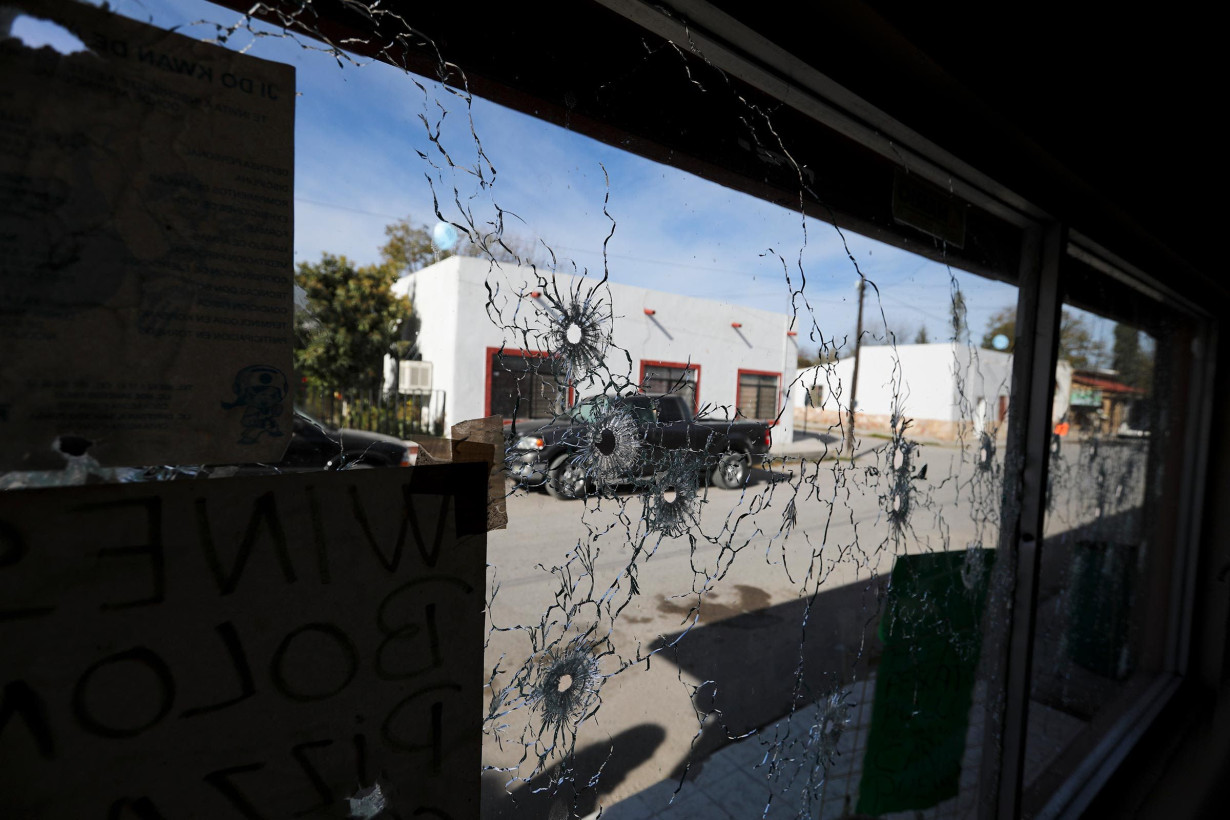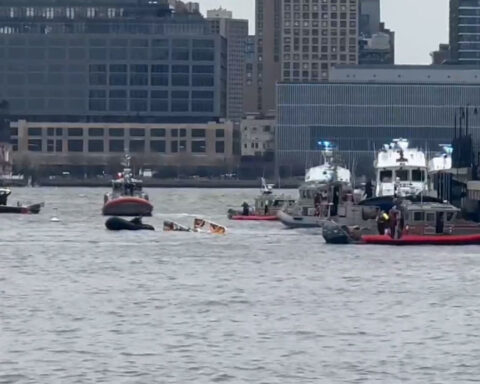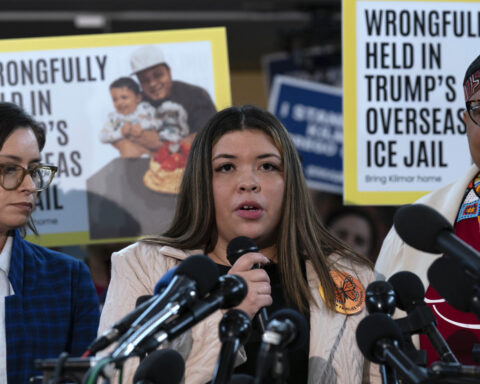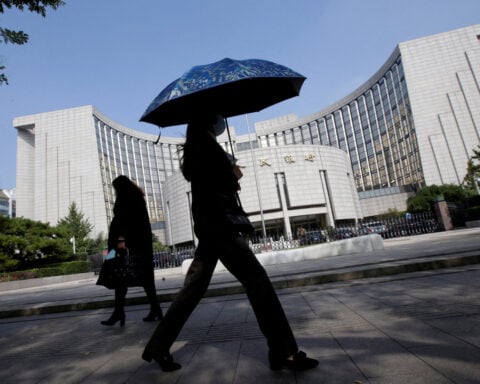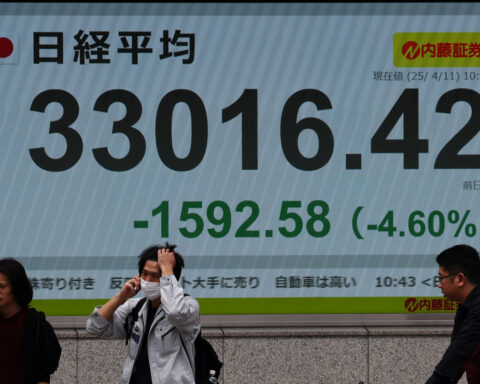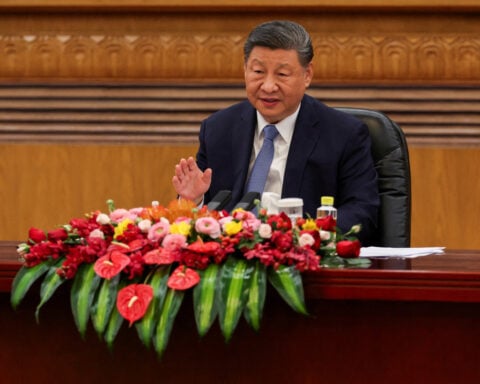(CNN) — The CIA is reviewing its authorities to use lethal force against drug cartels in Mexico and beyond as the Trump administration moves to make taking on the cartels a major priority for the intelligence agency, according to a US official and three people briefed on the matter.
The review does not indicate President Donald Trump has ordered the CIA to take direct action against the cartels. But it is designed to help the agency understand what kinds of activities it could legally undertake and what the potential risks would be across the suite of options, the sources said — underscoring how seriously the Trump administration is considering the possibility.
It also highlights some US officials’ concerns that using traditional counterterrorism tools against cartels — as the Trump administration has said it intends to do — carries a much higher risk of collateral damage to American citizens than similar operations conducted in the Middle East, far from US soil.
Among the issues agency lawyers are examining is the CIA’s and its officers’ liability if an American is accidentally killed in any operation, according to one of the people briefed.
Agency officials are “cautious” about using “assets traditionally going after what were seen as military targets now being employed against cartel targets,” the US official said.
The Trump administration earlier this year designated a number of cartels as foreign terrorist organizations — a maneuver some current and former US officials believe is designed to build a predicate for lethal action — and the CIA is already flying surveillance drones that are capable of being armed over Mexico.
The CIA declined to comment.
CNN was not able to determine whether the effort was ordered by the White House or CIA Director John Ratcliffe, or whether it was undertaken as a prudent planning measure by agency staff in response to clear signals from the Trump administration that it wants national security agencies to ramp up pressure on the cartels.
“If any administration is pushing us to do something that has potential significant adverse ramifications for the agency, [the CIA] is going to want to double and triple check: ‘Is it legal?’ and ‘Do we have extraordinarily clear policy direction to do what we’re going to do?’” said one former CIA official with experience building this kind of review.
“Just because something is legal under [the law of armed conflict] doesn’t mean it’s something you should do,” this person said, referring to protocols regulating the conduct of states during war. “There’s an ethical component. There’s a practical component. There’s a pragmatic component.”
CIA can use lethal force if authorized by president
The CIA has the legal authority to either conduct lethal strikes itself or provide targeting information or other support to another nation to carry out a lethal strike, as long as it’s properly authorized by the president and abides by the interlocking constellation of US laws and regulations that govern armed conflict.
But to do so against cartel actors in an area where there are, comparatively, far more US-born citizens and green card holders — people who might have the standing to sue the US government if they are harmed — is novel for the CIA.
“It’s not a question of whether they can or cannot use lethal force. They can,” said one of the people briefed on the review. “It’s more about the implications of Americans being potentially injured or killed based on their broader presence in the space.”
Collateral damage could also blow back on any partner nation that either allows the CIA to conduct direct action inside its borders or that accepts intelligence support from the agency to conduct its own lethal operations, the US official noted. If the CIA support creates a political problem for the partner nation — Mexico, for example — its government could refuse to allow the agency to operate there going forward.
Former officials have also warned about the risks of retaliation by cartels, some of which maintain a presence inside the United States.
“Mexican cartels are not merely criminal organizations; they operate as paramilitary entities with deep financial resources, global supply chains, and sophisticated logistical networks that extend into the United States,” Doug Livermore, a specialist in irregular warfare and a former Defense Department official, wrote in a recent study for the Atlantic Council, an international affairs think tank. “Cartels are highly likely to retaliate” and “possess a substantial capacity for terrorism that, when coupled with their established presence within the United States, could escalate conflict.”
One of the people briefed on the review said it reflected a deep institutional memory of the George W. Bush administration’s “enhanced interrogation” program, which lawmakers and the Obama administration subsequently deemed to be torture. In that instance, former officials said, the agency pushed its operations to the limit of what they believed the law could bear. Critics, of course, contend the agency and the administration went beyond what was legal, and in the years following, the CIA and its officers were put through a series of public and high-profile investigations into the propriety of their actions.
This sort of review, the people briefed on the matter said, reflects an understanding that the agency may be called to account for any action it takes against cartels — especially if there is blowback. And especially if the agency conducts operations that are ultimately seen as disproportionate to the threat from cartels — key criteria that lethal action must meet under the law of armed conflict.
The US intelligence community’s annual threat assessment, published last month, led with the threat from drug cartels for apparently the first time in the report’s nearly 20-year history. Many current and former national security officials, however, have repeatedly argued that while cartels are a serious problem, they are not an existential threat to the country.
“I think it’s very understandable that people are mindful of [the history of “enhanced interrogation”] to the extent that they actually don’t believe we’re in a crisis,” said one of the former officials.
The-CNN-Wire
™ & © 2025 Cable News Network, Inc., a Warner Bros. Discovery Company. All rights reserved.

 Trump has begun another trade war. Here's a timeline of how we got here
Trump has begun another trade war. Here's a timeline of how we got here
 Canada's leader laments lost friendship with US in town that sheltered stranded Americans after 9/11
Canada's leader laments lost friendship with US in town that sheltered stranded Americans after 9/11
 Chinese EV giant BYD's fourth-quarter profit leaps 73%
Chinese EV giant BYD's fourth-quarter profit leaps 73%
 You're an American in another land? Prepare to talk about the why and how of Trump 2.0
You're an American in another land? Prepare to talk about the why and how of Trump 2.0
 Chalk talk: Star power, top teams and No. 5 seeds headline the women's March Madness Sweet 16
Chalk talk: Star power, top teams and No. 5 seeds headline the women's March Madness Sweet 16
 Purdue returns to Sweet 16 with 76-62 win over McNeese in March Madness
Purdue returns to Sweet 16 with 76-62 win over McNeese in March Madness
